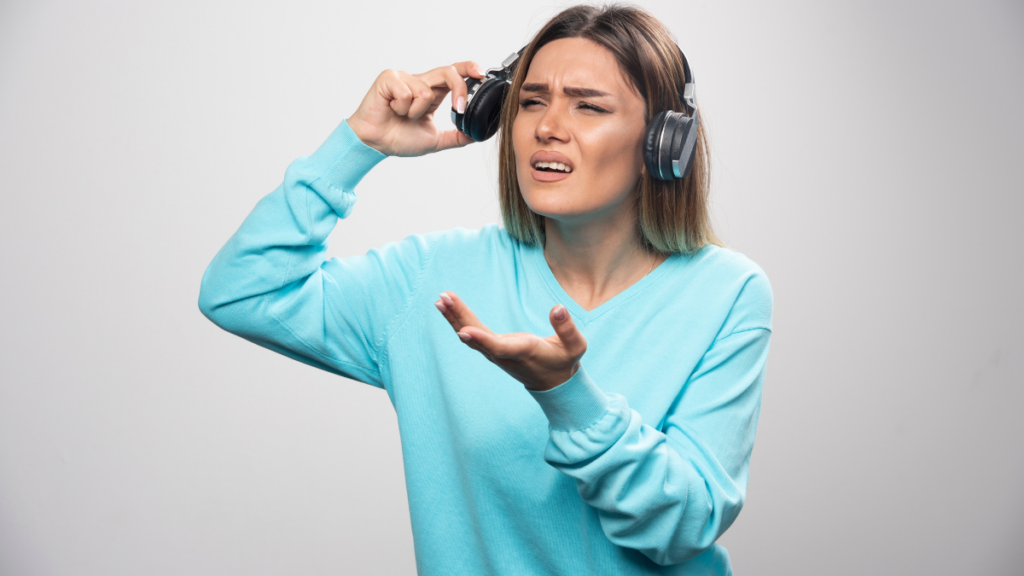
How to Prevent Hearing Loss Due to Loud Noise Exposure: Simple Tips to Protect Your Ears
We live in a noisy world—traffic, concerts, headphones, machinery, and even household appliances surround us with sound every day. While we may not notice it right away, these everyday noises can slowly harm our ears. That’s why it’s so important to understand how to prevent hearing loss due to loud noise exposure before it’s too late.
Noise-induced hearing loss happens when our ears are exposed to loud sounds for long periods. This can cause permanent damage to the tiny hair cells inside the inner ear. Unlike some other health problems, hearing loss often develops silently, and many people only notice it when it becomes serious. The good news? It’s preventable.
In this blog, you’ll learn what causes hearing damage, how to protect your ears, and what tools and tips can help. You’ll also get familiar with common terms like hearing loss symptoms, OAE tests, and degree of hearing loss, as well as how tools like digital hearing aids can help if damage has already occurred.
Understanding How Loud Noise Affects Hearing
Our ears are sensitive organs designed to handle a certain level of sound. Sound loudness is measured using units called decibels (dB). Sounds above 85 dB can start to cause hearing damage if you’re exposed for too long.
Safe vs. Harmful Sound Levels
Sound Source | Approximate dB Level | Safe Duration |
Whisper | 30 dB | Safe |
Normal conversation | 60 dB | Safe |
City traffic | 85 dB | Up to 8 hours |
Headphones at max volume | 105 dB | Under 5 minutes |
Rock concert | 120 dB | Few seconds |
Jet engine | 140 dB | Immediate damage |
As you can see, even daily environments can become risky. Long-term exposure can result in High-Frequency Hearing Loss, making it hard to hear voices, alarms, and other essential sounds.
Who Is at Risk for Noise-Induced Hearing Loss?
Noise-induced hearing loss (NIHL) is often thought to be a problem for factory workers or those in loud environments—but the reality is that it can affect anyone. Our ears are delicate, and prolonged exposure to noise, even at moderate levels, can lead to permanent damage over time.
Here’s a closer look at who should be especially careful:
- Construction and Factory Workers: Workers using heavy machinery, drills, grinders, or other industrial equipment face regular exposure to noise levels above 85 dB. Long hours in such environments without proper ear protection significantly increase the risk of hearing loss. Employers should offer earplugs or earmuffs and encourage hearing protection tips as part of workplace safety.
- Music Lovers and DJs: Whether you’re attending live concerts or performing as a DJ, loudspeakers and constant music exposure can damage the inner ear. Even frequent attendance at events with loud music puts your hearing at risk. If you enjoy music, use filtered earplugs to enjoy the sound without damaging your ears.
- People Using Headphones or Earphones for Long Periods: Listening to music or watching videos at high volumes through earphones is one of the most common ways young adults develop hearing damage from loud sounds. If the sound is too loud for someone next to you, it’s definitely too loud for your ears. Practicing safe listening habits is crucial.
- Students and Gamers: With more digital learning and long gaming sessions, students and gamers often wear headsets for hours. Over time, this exposure can lead to subtle but serious High-Frequency Hearing Loss, which affects the ability to hear soft consonants in speech, like “s,” “f,” or “t.” Parents should monitor screen time and encourage breaks.
- Older Adults Already Experiencing Hearing Loss Symptoms: Age-related hearing decline is common, but it can be made worse by exposure to loud noises over time. Seniors should be especially cautious and avoid high noise levels to prevent further damage. Suppose you or a loved one is showing Hearing Loss Symptoms. In that case, it’s wise to get checked with a professional test like the OAE test and explore early options, including reviewing digital hearing aid prices based on the level of hearing loss.
Knowing your degree of hearing loss can help guide you through the right protective steps.
Signs You May Already Have Noise-Related Hearing Issues
Noise-related hearing loss often builds slowly. You might not realize it until it becomes harder to hear everyday sounds. Look for these early warning signs:
- You ask people to repeat themselves often
- You hear a ringing or buzzing sound in your ears (tinnitus)
- You turn up the volume on the TV or phone
- You have trouble hearing in noisy places.
To confirm hearing damage, an OAE test (Otoacoustic Emissions test) is often used. It’s a quick, painless screening that checks if your inner ear is responding to sound correctly.
Top 10 Tips: How to Prevent Hearing Loss Due to Loud Noise Exposure
- Limit Your Exposure to Loud Sound: Try to avoid noisy places or leave early if you’re somewhere very loud.
- Use Hearing Protection: Wear earplugs or earmuffs in noisy places like concerts, airports, or construction sites.
- Keep Headphone Volume Safe: Follow the 60/60 rule: 60% volume for no more than 60 minutes at a time.
- Take Listening Breaks: Give your ears time to rest after being exposed to loud sounds.
- Avoid Inserting Objects into Ears: Cotton swabs can push wax deeper and damage the eardrum.
- Stay Away from Sound Sources: Keep a safe distance from loudspeakers or engines.
- Choose Noise-Cancelling Headphones: They help block outside noise, so you don’t need to turn the volume up high.
- Get Regular Hearing Tests: Annual hearing checks can catch damage early. Ask about the OAE test or other simple screenings.
- Teach Kids About Ear Safety: Encourage children and teens to protect their hearing early on.
- Use Certified Ear Protection Products: Look for noise ratings (NRR) when buying earplugs or earmuffs.
How to Reduce Noise Exposure in Daily Life
At Home:
- Keep the volume low on TVs and gadgets.
- Use rugs, curtains, or foam panels to reduce echoes.
- Select quieter appliances when shopping.
At Work:
- Ask about protective gear if you’re exposed to noise
- Take noise breaks
- Advocate for noise monitoring at the workplace.
This is all part of protecting ears from loud noise, and it works when done consistently.
Best Hearing Protection Gear You Can Use
Here’s a quick look at the most common gear and their noise-reduction capabilities:
Gear Type | Example Use | Avg. Noise Reduction (NRR) |
Foam Earplugs | Concerts, sleep | 20–30 dB |
Silicone Earplugs | Swimming, moderate | 10–25 dB |
Earmuffs | Factory, airports | 25–35 dB |
Noise-Cancelling Headphones | Daily use, offices | 15–25 dB (electronic) |
What to Do If You Suspect Hearing Damage
- Schedule a Hearing Test: Find a nearby clinic to get tested.
- Try the OAE test to check the cochlear function.
- Explore treatment options: If needed, your audiologist may recommend hearing aids.
- Compare the digital hearing aid price and features that suit your needs.
- Begin sound therapy or protective routines as advised.
Preventing Hearing Loss in Kids and Teens
Children today are exposed to screens and devices at a very young age. Here’s how to keep their hearing safe:
- Set volume limits on devices
- Buy volume-controlled headphones
- Teach safe listening habits.
- Limit screen and audio time
- Check hearing health regularly to prevent Degree of Hearing Loss later in life
Conclusion
Preventing hearing loss is easier than treating it. Knowing how to prevent hearing loss due to loud noise exposure is the first step toward healthy hearing for life. Whether it’s using earplugs, turning down the volume, or getting regular hearing tests, every small step counts.Be mindful of your surroundings, educate your loved ones, and don’t wait for the signs to worsen. If you notice any changes, reach out to a clinic for a hearing check and discuss tools like the OAE test and the latest digital hearing aids based on your needs. Stay protected. Stay sound.
Frequently Asked Questions
Using hearing protection like earplugs and keeping volume levels low are the best ways to avoid hearing loss.
Sounds above 85 dB can be harmful, especially with long exposure. City traffic, concerts, and loud devices fall in this range.
Usually not. Most noise-related hearing loss is permanent, which is why prevention is key.
You can get an OAE test at most hearing care clinics or audiology centres. It’s quick and safe.
Dr. Harshi, is an accomplished Audiologist with extensive expertise in treating individuals with hearing impairments.

